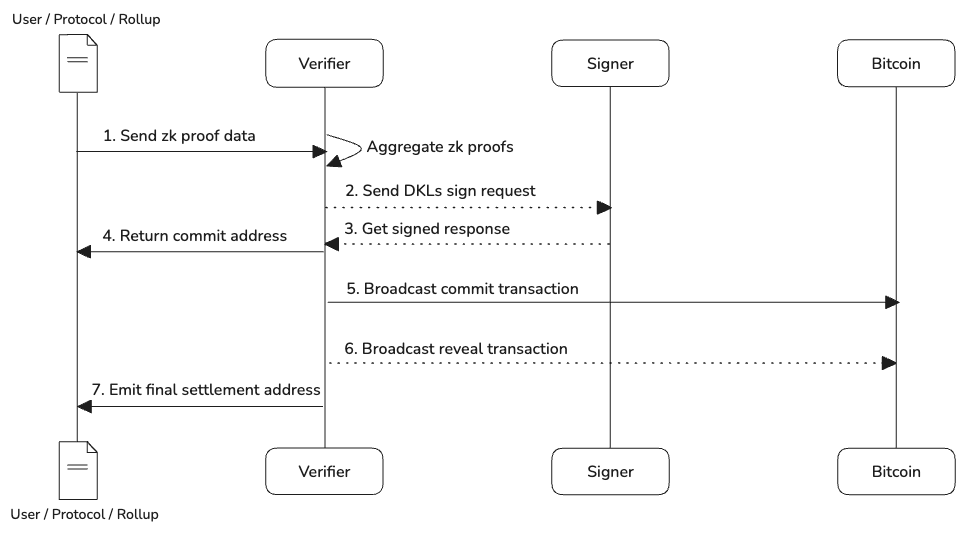Verifiers
Verifiers are responsible for zk-proof validation over state transitions and transaction histories. Leveraging a delegated Proof-of-Stake (dPoS) model, Verifiers utilize leverage off-chain aggregation to consolidate multiple proofs into recursive SNARK proofs, reducing on-chain verification costs and enhancing scalability. This approach confines Bitcoin’s on-chain data to state commitments and aggregated signatures, optimizing data availability and enabling throughput of over 7,000+ transactions per second.
Off-Chain Aggregation with Recursive ZK-Proofs
Through recursive zk-proofs, Verifiers aggregate multiple user proofs into a single succinct proof, cutting down on verification overhead. This enables the consolidation of extensive transaction data into minimal on-chain interactions, reducing costs and improving throughput efficiency.
Aggregation Layer
Optimized Data Availability
Surge prioritizes minimal on-chain footprint by posting only commitments and aggregated signatures, eliminating the need for full transaction details on Bitcoin. This approach maximizes throughput while keeping on-chain costs low.
Byzantine Fault Tolerance with CometBFT
Surge employs Tendermint with CometBFT to ensure Byzantine fault tolerance. Even with one-third network collusion, the consensus remains robust, ensuring network reliability.
Security with DKLS23 and TSS for Bitcoin Inscriptions
Using DKLS23 signatures and Threshold Signature Scheme (TSS), Surge enhances security for Bitcoin inscriptions. This distributed signing process secures state commitments against single points of failure, anchoring validated zk-proofs within Bitcoin’s PoW consensus.
Key Security Components:
-
State Commitment & Proof Aggregation: A Merkle root and aggregated zk-proof are embedded into Bitcoin.
-
Bitcoin Inscription: Each Surge state is linked to a specific Bitcoin block, inheriting Bitcoin's Proof-of-Work integrity. This results in** probabilistic finality**, where the likelihood of reversal diminishes exponentially with each confirmation.
-
Timestamp Integrity: Bitcoin’s native timestamping provides verifiable time references for each block. Every Bitcoin block includes a timestamp, which is used to record the time of the Surge state commitment. This timestamp can be verified by referencing the block height where the transaction UTXO was included.

User Protocol journey